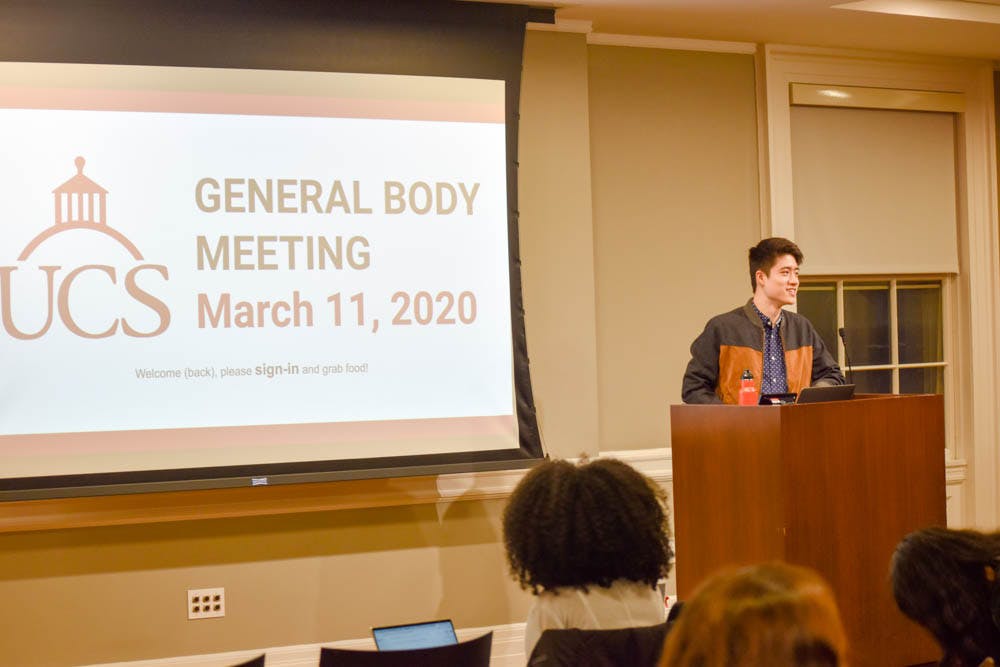At its general body meeting on March 11, The Undergraduate Council of Students sent an email to Provost Richard Locke P’18 and Vice President for Campus Life Eric Estes expressing concerns about possible actions the University could undertake in line with peer institutions, according to UCS President William Zhou ’20. Brown and Dartmouth are the only members of the Ivy League that, by press time, have not announced the suspension of in-person classes in response to the COVID-19 coronavirus outbreak.
The University has already taken several measures in response to the pandemic, including suspending all Brown-sponsored domestic travel, restricting gatherings of more than 100 people and canceling all on-campus admissions tours and events, The Herald previously reported.
Zhou asked members of the general body to break into small groups to discuss the hypothetical situation in which coursework moves online and the University sends students home. With educational institutions across the country suspending in-person classes in response to COVID-19, students have begun discussions on campus around the possibility of being sent home indefinitely.
“We are committed to taking all necessary steps to protect the safety and well-being of the Brown community,” wrote Locke and Estes in an email sent to the student body Wednesday morning announcing the negative results of three students tested for COVID-19 earlier this week.
“The best policy is transparency,” Chair of Student Activities Alex Song ’20 said. “I think that a lot of fear and uncertainty is due to people not knowing what’s going on or what the administration is thinking.”
If the University asks students to leave campus, “there should be some sort of compensation for their housing and meal plan,” First-Year Representative Zane Ruzicka ’23 said. “We would like to hear the administration say that they’re taking into consideration seniors’ graduation as well,” he added.
Chair of Student Wellness Shivani Nishar ’20 also voiced worries about the potential impacts of University action on student life. “Students still have midterms scheduled and are still expected to study and take those exams, even though they might have to pack up and leave,” she said.
Nishar also discussed additional circumstances that would complicate student plans in response to the University’s decision. “A lot of issues stem from the cost of everything and how that’ll fall on the students,” she said. “What about students who rely on their jobs on campus for income, or students who have abusive families and cannot go home?”
In addition, Nishar noted the circumstances of students currently abroad, noting that many of those attending universities without academic continuity have been forced to postpone their graduation dates by a semester.
Because many professors have begun transitioning classes to virtual video conferencing in anticipation of University action, members of the general body also questioned the impact of time zones on online learning, the variation in home internet quality across the student body and the logistics of dealing with rental textbooks at the end of the semester.
Also at the meeting, Chair of Campus Life Zanagee Artis ’22 presented a letter from the Brown chapter of the national organization Every Vote Counts. The letter, which the organization asked UCS to sign, will be sent to large employers in the United States, urging them to offer paid leave for employees on Election Day in November. The Council passed the motion to sign the letter with a simple majority vote.
Co-Appointments Chairs Sam Caplan ’22 and Eamon McKeever ’22 presented an amendment to the Council’s bylaws to appoint UCS representatives to University committees. The amendment passed with a simple majority when put to a vote.





